|
"Children Learning, Parents Earning, Communities Growing"
|
|
|
 |
|
Issue #40
October 1, 2018
|
|
CAPPA's monthly "Featured Agency" segment will highlight amazing work being done by Alternative Payment Programs (APPs) child development contractors throughout the state of California. From border-to-border, APPs support working families and children with services to support self-sufficiency, stability of children in child care, and a host of services coordinated to help break the cycle of poverty. Many APPs also have been called on to serve as a community life-support of information and resources during natural disasters. We are pleased to continue this tradition and bring focus to the untapped potential that is the 40 plus year APP community-based system.
|
|
October 2018 Featured Agency of the Month
Solano Family & Children's Services
CELEBRATING SOLANO FAMILY & CHILDREN'S COUNCIL'S 40TH ANNIVERSARY

was founded in 1978 by a group of Licensed Child Care Providers in Solano
County.
Solano County originally received $21,575 in funding from the State (AB 3059) for Resource and Referral Services. In April 1979, SFCC was established as a 501c (3) organization.
In 1981, P. Kurt Galvez (former Executive Director) was hired to write grants; he received funding for the Crisis Intervention Hotline. By the end of 1981, our total funding for Resource and Referral Program, Child Care Food Program, Subsidized Child Care Program, and Stress-Line was $292,457.
In 1983, our Child Care Food Program was our largest contract and the need for child care assistance was providing growth to our Subsidized Child Care Program.
In 1991,
SFCC changed our name (to the public) to Solano Family & Children's Services (SFCS) and with that change, came a new logo, which we still use today - a child on a man's shoulders carrying balloons.
The agency had continual growth as the population of
our county increased. In 1992, we received funding from the Federal Government through the Federal Block Grant in the amount of
$1,530,284.
In 1998, we began to work with the Solano County Health & Social Services Department on the application for CalWORKs Stage 1 Child Care
funding. Our collaboration paid off. The County made SFCS the CalWORKs Stage 1 administrative agency for their clients' child care needs. Together with CalWORKs Stages 1, 2 and 3, our first year of CalWORKs increased our Subsidy funding to $4,369,734.
During the State budget crisis in 2003, our funding was cut by 25% and staffing lay offs and office closures had to occur. We worked together as a team to handle this difficult situation. We maintained our core services and continued to serve the whole county from one office. We utilized our community partners to support us in our next challenge, during the elimination of CalWORKs Stage 3 Child Care by Governor Schwarzenegger in 2010. During this last Fiscal Year 2017 - 2018, SFCS' total funding was just under $21,000,000.
After 40 years of service in Solano County, here we are today, more efficient, working with better equipment, trained staff, and offering the best service we can to our clients. We take pride in our work.
SFCS's mission is to promote and advocate for the well-being of children, their families and child care providers, by offering access
to a variety of child care resources.
SFCS administers the following programs:
Resource and Referral (R&R)
In 2016, R&R grew from three staff to five, and is currently at eight. Part of this growth was due to receiving funding from First 5 Solano to administer the Help Me Grow (HMG) Program. This was a natural addition to R&R as we were contracted to train child care providers in the Ages and Stages Questionnaire (ASQ) screening tool since 2014. Staff implementing Help Me Grow, CCIP, Preventative Health, Child Care Referrals, and Provider Training, collaborate to serve the whole family and child care provider. This year we implemented the Family Navigation and Training for the Bridge Program.
Child Care Food Program (CCFP)
In July 2017, SFCS's CCFP was awarded a $20,000.00 Kaiser Community Benefit Grant for Grow It, Try It, Like It! Preschool Fun with Fruits and Vegetables. This project is a garden-themed nutrition education program that provides kit that introduces new fruits and vegetables to pre-school-age children. The materials are designed to help child care providers learn how to integrate good nutrition into their curriculum. Child care providers participating in the CCFP receive a one-on-one training and materials.
Subsidized Child Care Program
We administer the following programs: California Alternative Payment Program (CAPP), CalWORKs Stages 1,2 and 3 and Workforce Development Board Child Care. Last year, we received funding from the Solano County Health and Social Services Department (SCHSSD) to administer the Emergency Child Care Bridge Program. This year, SFCS is expecting to sign another contract with SCHSSD for their Substance Abuse Child Care Program.
Visit our website at: www.solanofamily.org E-mail: [email protected] www.facebook.com/solanofamily Follow us on Twitter at: SolanoFamilyCS
**A BIG thank you to Eloisa Mercado,
Subsidized Child Care Program Director, for this submission!
|
|
 |
|
|
CAPPA's
2018-19 Board of Directors
|
|
Rick Richardson
Child Development Associates
Karen Marlatt
Valley Oak Children's Services
Beth Chiaro
Child Care Resource Center
LaVera Smith
Supportive Services Fresno
Martin Castro
Mexican American Opportunity Foundation
Jeffrey Moreira
Crystal Stairs, Inc.
Public Policy Co-Chair
Phillip Warner
Children's Council San Francisco
Tina Barna
Choices for Children
Abby Shull
YMCA Childcare Resource Service
Leslie Reece
Family Resource & Referral of San Joaquin County
Jeanne Fridolfs
Mike Michelon
Siskiyou Child Care Council
Marco Jimenez
Central Valley Children's Services Network
San Mateo 4Cs
Michelle Graham
Children's Resource & Referral of Santa Barbara County
Joie Owen
Glenn County Office of Education
Denyne Micheletti Colburn
CAPPA CEO
|
|
|
EESD/CDE, DSS & CCLD Updates
|
|
The form for reporting General Child Care data (CDNFS 9500) has been posted to the Child Development and Nutrition
California is eligible for a new federal grant opportunity administered by the United States Department of Health and Human Services, the Preschool Development Grant (PDG). The maximum amount a state can apply for is $15 million and the application is due November 6, 2018. Similar to the prior Race to the Top-Early Learning Challenge grant, this is a Governor's application and it requires Governor Brown's
s
ignature in order to be submitted.
The CDE is pleased to announce the release of an Early Learning Career Lattice, which was recently approved by the State Advisory Council on Early Learning and Care at its June 20, 2018, meeting.
August 28, 2018
August 24, 2018
August 21, 2018
August 17, 2018
August 3, 2018
CDSS has scheduled a Public Hearing on September 19, 2018, to receive testimony on proposed regulations concerning Safe Sleep for infants in childcare facilities.
Learn more here.
August 1, 2018
MB 18-05:
Transfer of Families into a California Work Opportunity and Responsibility to Kids Stage 2 Child Care Program
|
|
|
Job Announcement Highlight
MCT Technology
We have a job opening for Infant Toddler Program Trainer / Director in Shanghai, China. Looking for someone who is interested in joining an extremely dynamic team to build an innovative national ECE model in the fastest growing economy. Salary: $70,000 - $85,000 (based on experience) + Equity Housing and Meals: Company paid Annual Travel: 2 x Round trip tickets between China and US
Is Your Organization Hiring?
Post your job announcement here for thousands to see!
There is no charge for CAPPA members.
Non-members will be charged a fee of $75.
Please
email us
your posting!
Child Care Resource Center
Solano Family & Children's Services
Community Action Partnership of San Luis Obispo County, Inc.
International Institute Los Angeles
Child Development Centers, Inc.
Children's Council of San Francisco
Receptionist
Community Child Care Coordinating Council (4Cs) of Alameda County
Pomona Unified School District- Child Development
Children's Council San Francisco
Child Care Coordinating Council, Inc. of San Mateo County
Child Development Inc. is Hiring! See the Recruitment Flyer
Here.
|
CAPPA Member Benefits now available on the Members Only website:

NEW! CAPPA Member Benefit: Travel and Entertainment Discounts.
Save up to 40% on theme parks, movies and shows!
CAPPA Community Forum
This Forum is an integrated discussion board and will allow members to engage in online discussion, subscribe to your favorite topics, get your questions answered and upload your agency forms- Find answers, stay informed, and make connections!
Email CAPPA for your log-in so that you can access this forum and all other resources that the member's only website has to offer.
Successful Classroom Management
|

AmazonSmile is a simple and automatic way for you to support CAPPA every time you shop. When you shop at
smile.amazon.com
,
you'll find the exact same low prices, vast selection and convenient shopping experience as Amazon.com, with the added bonus that Amazon will donate a portion of the purchase price to CAPPA.
If interested, you can also sign up for an Amazon Business account for free. This is similar to a Prime account and will give you free 2-day shipping. You can learn more
Here.
Please let us know if you have any questions. Thank you for your support!
|
The CAPPA Board has made it a priority to support our field with a coordinated calendar to note upcoming statewide conferences, federal conferences of relevance, CDE and DSS stakeholder meetings and legislative and budget deadlines and hearings.
If you have news to share or an event you want added to CAPPA's website calendar,
email us!
|
|
 |
|
 |
All bills pending before the governor have now been acted. Unless otherwise noted in legislation, bills signed by the governor will go into effect on January 1, 2019.
This bill would require certain information to be automatically shared between county welfare departments and local child care contractors to facilitate an effortless transition of families between child care programs. This is a good goal, as any interruption in child care coverage for a family can be devastating, particularly for working parents in the CalWORKS program.
However, this bill impacts an entitlement program and the changes contemplated in this bill have the potential to cost the state $50 million a year and is more properly considered as part of the budget process.
AB 605 (Mullin) -
Signed by the Governor! Goes into effect January 1, 2019.
This bill will allow a much needed birth-to-entering -first-grade license option for day care centers. Further, this bill
will allow the Department of Social Services (DSS) to create an integrated child care facility license as an additional option that providers can choose when applying for or renewing their facility license. The addition of an integrated birth through entering first grade facility license option will allow child care and preschool providers the ability to implement the best practices around continuity of care when transitioning children, teachers and peers between age-specific classrooms. This integrated facility license option will also allow providers with federal contracts to more fully meet continuity of care regulations. AB 605 will also allow child care providers the ability to better manage their school year enrollment so that their facility can reach maximum utilization, thus serving more children and families. A single license option will reduce the administrative burden on severely underfunded child care centers and DSS so that they can both focus on providing a safe and healthy environment for California's children.
AB 2626 (Mullin) -
Signed by the Governor! Goes into effect January 1, 2019.
This bill will ensure more families have access to subsidized child care and early learning throughout the state by extending key flexibilities and efficiencies, already provided to 13 counties, statewide to all applicable early learning contracts.Specifically, AB 2626 would expand age eligibility and remove restrictions for children who can be served in a California State Preschool Program, increase the State Median Income eligibility threshold in order to expand the number of working families who are eligible for services, increase the eligibility timeframe in order to allow stability and continuity of services for children and families, increase the utilization of available funding by allowing providers stability and continuity of services of enrollment of children and families, offer better workforce stability and quality by providing staff development opportunities, and provide flexibility in funding adjustments to allow contractors to better utilize available funding.
November 6 is the General Election.
November 30 is the last day "
sine die" of the 2017-18 session.
Click here
to be directed to CAPPA's website to see all of the legislation that has been identified to be of interest to our field and the status.
Federal
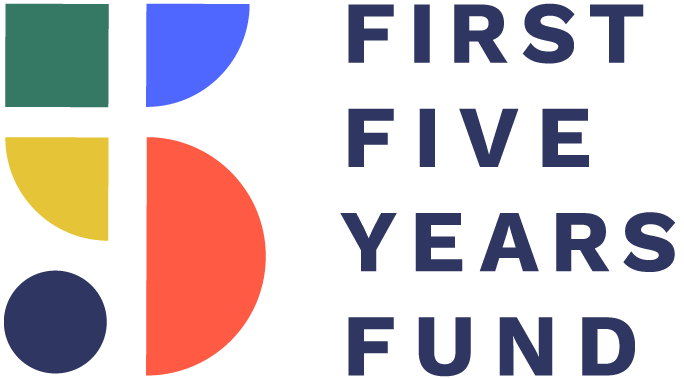
Congress Approves $260 Million Funding Increase for Federal Early Childhood Programs
Washington, D.C. - In a critical bipartisan House vote, Congress has approved a FY2019 "minibus" appropriations package that includes $260 million in increases to the federal early childhood education programs. Notably, in addition to a $200 million increase to funding for Head Start and Early Head Start, lawmakers voted to increase funding for the Child Care and Development Block Grant (CCDBG) program by $50 million, building on the historic $2.37 billion increase the program received in FY2018 through
a bipartisan deal
made by House and Senate leaders.
The funding package approved today, which also includes FY2019 funding for the Department of Defense, as well as a short-term Continuing Resolution to fund the rest of the government through December 7, 2018, was overwhelmingly approved in a 361-61 vote, and now awaits the president's signature.
"Congress has again prioritized the care and education of America's young children, building on years of bipartisan progress and commitment from lawmakers," said First Five Years Fund (FFYF) Executive Director Sarah Rittling. "The funding levels included in this bill will support greater access to, and the quality of early childhood education programs that are proven to support children's healthy development and prepare them for a lifetime of achievement. We are grateful to Democratic and Republican leaders in the House & Senate for their unwavering support for children from birth through age five."
Earlier this month, a Congressional Conference committee made up of bipartisan representatives from the House and Senate
reached agreement on this funding "minibus" package, after negotiating appropriations legislation from the
House and
Senate.
Take a look at the final FY2019 funding numbers as approved today:
Child Care and Development Block Grant (CCDBG)-$5.3 billion - $50 million above FY2018
Early Head Start / Head Start-$10.1 billion - $200 million above FY2018
Preschool Development Grants-$250 million - Level with FY2018
Child Care Means Parents in School-$50 million - Level with FY2018
IDEA Part B Preschool Grants-$391.12 million - $10 million above FY2018
IDEA Part C Grants for Infants and Families -$470 million - Level with FY2018
Research shows high-quality early learning and care from birth through age five benefits the academic, social, and emotional skills of children later in life and contributes to improved long-term societal outcomes. The high-quality early childhood education programs included in today's appropriations package play a critical role in ensuring that all children, regardless of where they start in life, have the opportunity to build a foundation for lifelong success.
FFYF is committed
to working with stakeholders in the coming months to build upon the robust federal support for early childhood education programs so that all children can access high-quality opportunities that help them reach their full potential.
|
|
|
Request: Input Opportunity for Federal Preschool Development Grant Application
|
|

This is a message from the California Department of Education (CDE), Early Learning and Care Division (ELCD).
***************************
Input Opportunity for Federal Preschool Development Grant Application
California is eligible for a new federal grant opportunity administered by the United States Department of Health and Human Services, the Preschool Development Grant (PDG). The maximum amount a state can apply for is $15 million and the application is due November 6, 2018. Similar to the prior Race to the Top-Early Learning Challenge grant, this is a Governor's application and it requires Governor Brown's signature in order to be submitted.
The PDG grants are intended to support States in their efforts to analyze the current landscape of their early learning and care mixed delivery system and implement changes to the system that maximize the availability of high-quality early learning and care options for low-income and disadvantaged families across providers and partners, improve the quality of care, streamline administrative infrastructure, and improve State-level early learning and care funding efficiencies.
- What sector or agency do you represent?
- What is the most important outcome you would like to see if California wins this grant?
- What about this approach to the application do you like?
- What about this approach do you not like?
- As the application is developed further, is there anything specific you would like to see referenced or included?
Please complete the survey by 5:00 p.m. Pacific Time, October 4, 2018.
The CDE will compile stakeholder feedback to inform the development of the application - and, we hope, the implementation of a grant in 2019. Thank you for your input.
|
|
|
EESD will now be known as the California Department of Education Early Learning and Care Division (EELC)
|
|
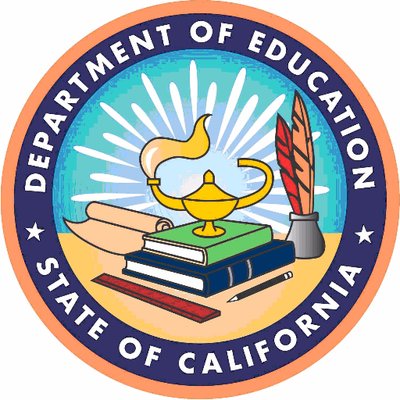
VISION All California's children have a strong early learning and care foundation, supporting the whole child and school and lifelong success.
MISSION Lead an innovative, inclusive, and high-performing early learning and care system by advancing equitable opportunities that optimize thriving children, families, and communities.
Three Priorities:
Priority 1: One System - Create One System with a Collective Voice and Lead Systems Alignment and Reform
Priority 2: Equity, Capacity and Quality - Address Equity by Building Capacity and Quality Across Agencies, Programs, Settings, Communities, and the Early Learning and Care Workforce
Priority 3: Integrity, Stewardship, and Excellence - Provide Reliable Leadership, Service, and Support
|
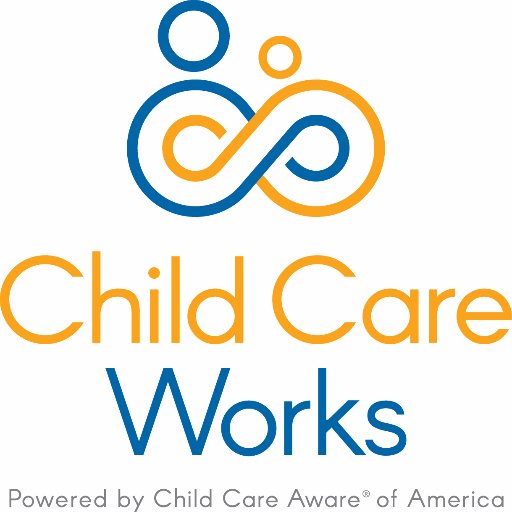
Last weekend, the Trump Administration announced a very harmful draft proposal that would change the definition of a "public charge" in an effort to support its ongoing and extreme overhaul of U.S. immigration policy.
A "public charge" is a policy implemented by the federal government to identify people who may depend on benefits (TANF, Supplemental Security Income, long-term care) to support themselves and their families. The social safety net and programs like these support the wellbeing of families and communities. Under current policy, the United States can deny an immigrant/refugee admission to the country, or refuse an application for residency, if it's determined that the person(s) would be a public charge.
The Administration's proposal would considerably expand the public charge definition, putting millions of families at risk by forcing them to forgo any public assistance in an effort to remain in the country. This proposed rule would target many programs that help low-income families, including:
* Non-emergency Medicaid
* Subsidies provided through the Affordable Care Act
* Temporary Assistance for Needy Families (TANF)
* Supplemental Nutrition Assistance Program (SNAP)
* Supplemental Security Income (SSI)
* Housing assistance such as Section 8 vouchers, and
* State and local assistance programs
In addition, the Administration is considering adding the Children's Health Insurance Program (CHIP) to the list of benefits.
This rule would impact the lives of millions of children and families who not only rely on the programs listed above but also those who depend on child care assistance and other critical education and health programs. In fact, many immigrant families have already disenrolled from these programs even though current U.S. public charge policy still remains.
The Administration is expected to officially publish this proposal soon and will seek comments for 60 days after its release, and we strongly encourage you to respond. In addition, Child Care Aware® of America is working closely with the National Immigration Law Center and CLASP and you can access key resources here. Also, we strongly urge you to join the webinar both organizations are hosting on
October 3 or October 17. Both are scheduled for 1:00 pm EST.
|
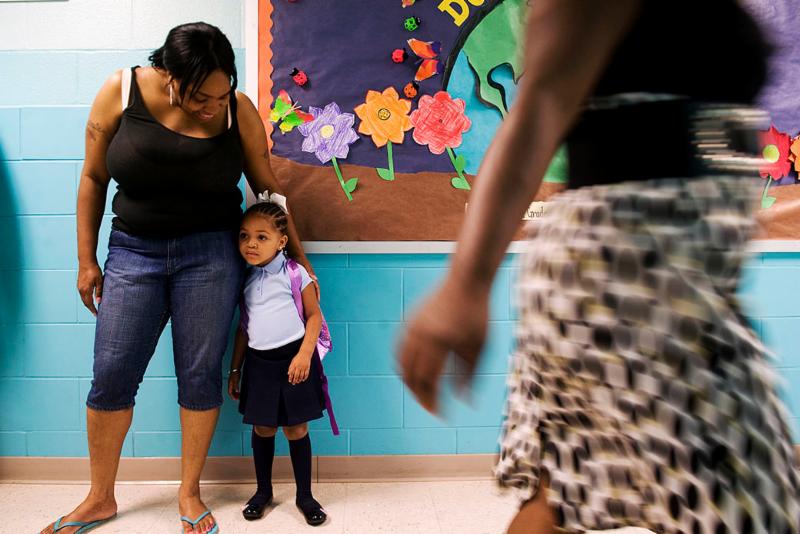
Center for American Progress
The Effects of Universal Preschool in Washington, D.C.
|
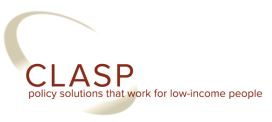
New data out today from the U.S. Census Bureau show that progress for low-income Americans came to a near halt during the first year of the Trump Administration, in sharp contrast to previous years of progress. In 2017, the poverty rate fell slightly to 12.3 percent and the number of people in poverty was statistically unchanged from 2016, compared to the substantial decline in poverty in the previous two years (from 14.8
percent in 2014 to 13.5 percent in 2015 and 12.7 percent in 2016). While median household income rose for all households-at a far lower rate than in previous years-the improvement was concentrated among those in the top half of incomes
|
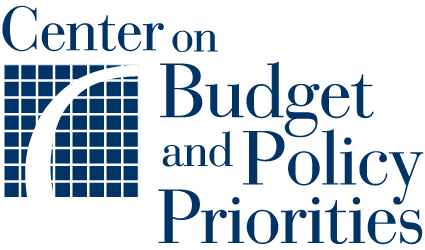
After several years of lower poverty rates, higher income, and broader health coverage, gains slowed - and
in some cases stalled
- in the states in 2017, new Census data show. For example, fewer states reduced their share of people below the federal poverty line (about $25,000 for a family of four), according to
new state data
from the American Community Survey. Because policy decisions affect whether people get a real shot at economic opportunity and communities thrive, states should do what they can to reverse the decline in progress.
Today's data show that:
- Poverty fell in 21 states in 2017 and rose in two (Delaware and West Virginia), compared to 2016 when it fell in 25 states and rose in just one.
- Child poverty, in particular, fell in 16 states in 2017, compared with 23 in 2016. It rose in one state, New Hampshire. (See chart.)
- Fewer states saw incomes rise, likely due in part to a slowdown in employment gains, and income gains were not shared equally across racial and ethnic groups, as I've explained.
|
|
Of Interest
NOTE: If you would like to share your newsletter or items of interest with our field via the Monday morning e-Newsletter, then please
email us
a link. Please make sure that you have a link included to an online version or viewing
|
Hello Blue Ribbon Commission Community!
Please save the date for our next Assembly Blue Ribbon Commission hearing in Long Beach, CA. This will be our final hearing before moving into our draft recommendations and final report in spring 2019. Throughout the development of our final work, we will be holding public hearings in Sacramento to discuss recommendations and take public comment.
What:
Assembly Blue Ribbon Commission on early childhood education hearing
When:
Tuesday, October 9, 2018 at 1:00pm
Topic:
Opportunity for All our Young Learners and their Families (L.A. Focus)
Where:
Long Beach City College
Trustees Boardroom (building T on map)
4901 East Carson Street
Long Beach, CA 95808
Parking: Parking Structure J, Lot K or Lot N.
Thank you,
Stacey Reardon
Speaker Anthony Rendon
(916) 319-2063 office
(916) 319-2163 fax
|
2 Weeks!! Register Online
HERE.
For more conference information and to see the Preliminary
Workshop Program,
Click Here.
Here is a highlight of just a few workshops that will be offered:
- What's Trending for Children & Families in California
- Family Partnerships & Culture
- Welcome to the Jungle: Where Exceptional Service is up to Us
- Where are We Going? A Conversation with CDE and CDSS
About the Conference
The California Child Care Resource & Referral Network and the California Alternative Payment
Program Association look forward to hosting our 6th Joint Conference together this fall.
Over 75 plus workshops are scheduled. Conference registration includes four meals, two plenary
sessions, over 60 workshop selections and all conference materials.
Hotel Reservations:
Our room block at the DoubleTree is sold out. If you are still in need of a room, please email
Danielle.
Partnership Information:
|
|
|
Register Today for an Entire Year's Worth of Training!
|
|

All New Early Learning & Child Care Webinar Series for 2018!
Build or Add to your
Resource Library!
This is Your Opportunity to Receive Professional Development in a Format Convenient to You.
Topic for October 2018:
Successful Classroom Management
Vicki Gibson, Educational Consultant, Author and Speaker, Gibson Hasbrouck & Associates
Early Educators know that when you're faced with a room full of children, clear expectations and routines are vital if teaching and learning are going to happen. Implementing classroom management techniques can be a challenge when you're dealing with high-energy kiddos. During this webinar, we will discuss the keys to classroom management in an early childhood setting.
Click Here to see more details, topics and to register for the all new 2018 series.
The 2010- 2017 series' are still available for purchase. Purchase the 2010, 2011 and 2012 webinar CDs for 50% off!! For more information or to view past topics,
Click Here.
|
|
|
CAPPA Monday Morning Update Partner
|
|

Our Monday Morning Update supports our Early Learning & Child Care field with timely information about what is going on in California and nationally; as well as dates to be aware and upcoming events.
Our weekly (50 times per year) Monday morning distribution is to more than 4,000 federal and state local agencies, resource and referrals, contractors, legislators and their staffs', centers, parents, providers, state departments and advocates.
To help support the continuation of this resource and or advertise in the Monday Morning Update, click
HERE.
You can also make a donation to CAPPA and CAPPA Children's Foundation
The Children's Foundation is a non-profit organization (501(c)3), Taxpayer Identification Number is
03-0521444. Your generous donation is tax deductible.
|
|
|
 |
|
|
 |
|